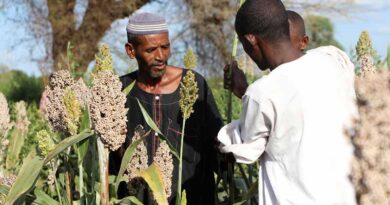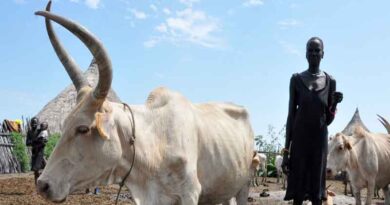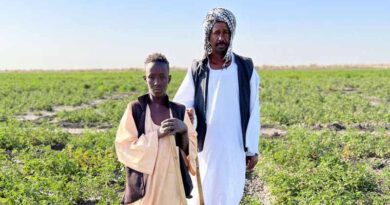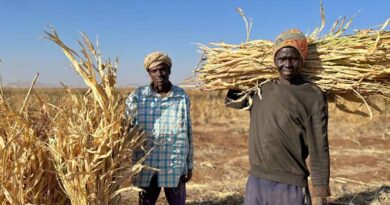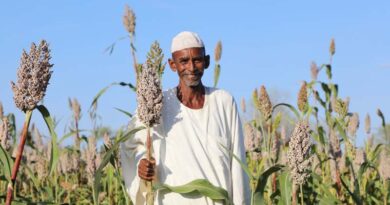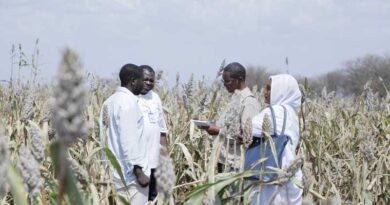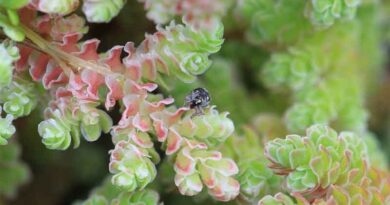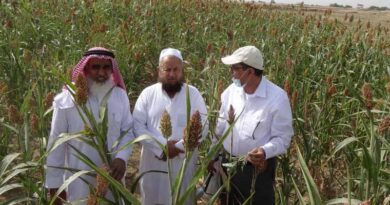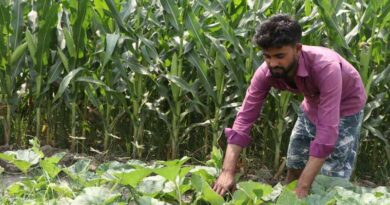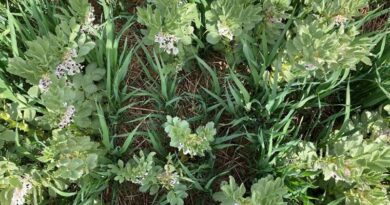Women Farmers Enhance Agricultural Production in Conflict-torn Sudan
04 May 2024, Sudan: The ongoing conflict in Sudan continues to contribute to a food crisis threatening the lives of over 18 million people. Farmers, especially smallholders and vulnerable women, are facing extraordinary challenges in obtaining needed agricultural inputs, and access to markets is diminishing.
In Kassala State, East Sudan, which hosts hundreds of thousands of people displaced by ongoing armed conflict including Ethiopian and Eritrean refugees, the USAID-funded Sustainable Agrifood Systems Approach for Sudan (SASAS) is working with women farmers to prepare and safeguard the upcoming growing season. This work is critical to help meet the unprecedented demand for vegetables in the region and achieve sustainable development goals.
“At SASAS, we are working to empower women farmers, especially those who lost their traditional livelihood resources, and help them to acquire skills and techniques to increase their agricultural production to help improve food security,” said Abdelrahman Kheir, SASAS chief of party in Sudan.
SASAS works with the El-Haram Agricultural Cooperative, a women-led farmers group, based in Kassala, to help increase vegetable production. SASAS trains El-Haram Agricultural Cooperative members on modern agricultural techniques, irrigation techniques, pest control, and organic fertilizers to increase crop yields.
“SASAS trained us on new ploughing and land preparation techniques, which we never used before and then provided us with improved seeds of okra, tomato, chili, and mallow, and encouraged us to use legumes as organic fertilizers,” said Imtithal Atta, a farmer from the Alsawagi neighborhood in Kassala. “In the past, I used to buy vegetable seeds from the local market, but they grow poorly. The improved seeds given by SASAS are germinating extremely well. My income has doubled; I almost made $250 from my first harvest of vegetables.”
The ongoing conflict has interrupted traditional livelihood activities in many regions. In some areas, farmers missed the harvest, leading to a dramatic reduction in agricultural production and debilitating price increases for cereals and vegetables. SASAS is helping to restore agricultural production in key growing regions by ensuring farmers have timely access to necessary production inputs, including fertilizer and climate-adapted seeds.
“For years, I have worked tirelessly on my family’s farm, season after season, without earning a good income, and I was not sure what was wrong. Luckily, this cultivation season, SASAS trained us on new ploughing techniques to better prepare the land for cultivation, using organic fertilizers to enrich the soil and offering us improved vegetable seeds,” said Fatima Ahmed, a woman farmer and a mother of three children from the El-Haram Agricultural Cooperative.
“Thanks to SASAS, both the quality and the quantity of my agricultural products have greatly improved. I am so happy that I got some good money from my vegetables. I feel empowered and now I can have a strong voice within my community. I am more confident and gained the courage to participate in important decision-making processes within my family and express my opinions without fear,” said Ahmed.
A critical part of SASAS are efforts to diversify food production in Kassala, where malnutrition among children under 5 years old, and breastfeeding, lactating, and pregnant women, are prevalent.
“I used to go to the main market in town to get my daily needs from vegetables, but now I buy what I need from women farmers closer to my home. They are selling me fresh vegetables at a good price. The taste of the vegetables is quite fresh and healthy, this is something I have been missing for a long time,” said Hanan, a resident of Alswagi.
“The vegetables produced by members of the El-Haram Agricultural Cooperative has led to an increased supply in the local market. I buy vegetables from women farmers and sell them here in the neighborhood market. This has cut my transportation cost as I used to buy vegetables from markets a long distance away,” said Osman, vegetables trader, also in Alswagi.
Also Read: PAU Registers First Biocontrol Agent for Foot Rot Disease Management in Basmati Paddy
(For Latest Agriculture News & Updates, follow Krishak Jagat on Google News)


